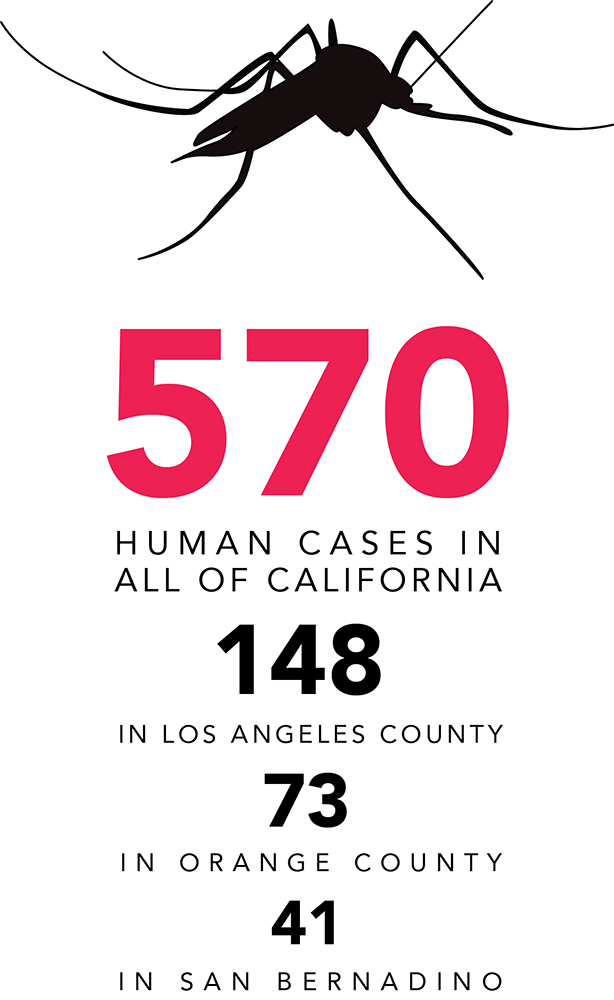A total of 148 cases of humans contracting West Nile virus have been recorded in Los Angeles County as of Nov. 13, 2015.
The Ongoing Threat
With 28 Californians losing their lives to the WNV over the course of this year, the ongoing threat of the disease has again caused concern for the West Coast. Since its introduction to North America in 1999, the mosquito-born disease has spread throughout the country, leading it to be deemed endemic by the Vector Control District of Los Angeles.
According to the California Department of Public Health Virus, 29 of the 58 confirmed cases in the state have been in LA County. This not only establishes 2015 as a year featuring more activity from WNV than many prior years, but accentuates the reaction of citizens and establishments.
“Our district has confirmed West Nile virus activity in La Mirada. Using mosquito traps, we identified active transmission of the virus in seven samples so far this year in the city,” said Levy Sun, public information officer of Greater Los Angeles County Vector Control, in an email. “Last year, the District confirmed eight mosquito samples that were positive for West Nile virus.”
Involvement on Campus
The activity of WNV in La Mirada has led to Vector Control’s involvement on campus to ensure the safety of Biola students.
“Biola has a very good working relationship with Vector Control. They regularly check here on campus,” said Kristin Phelps, director of the Student Health Center. “They didn’t find any activity.”
Vector Control also told the Student Health Center the mosquito problems are more connected with private homes rather than university campuses due to their lack of immediate access to treatment or inspection.
Not Stirred
Despite the ongoing collaborations with Vector Control and conviction to keep Biola’s campus safe, the student population has not been substantially stirred.
“Honestly, my opinion is that the odds of me coming into contact with something like West Nile are so slim that I could couldn’t care less whether they tell me it’s going around,” said Kohl Herman, sophomore Christian ministries major.
When Herman lived in Indonesia, both of his parents contracted Dengue Fever, a Mosquito-transmitted disease which can be fatal if left untreated, without lasting effects.
“These are things that America considers tropical, exotic diseases and they’re kind of common [in Indonesia],” Herman said. “Everybody gets stuff and no one really makes a big deal about it.”
The Reality
In light of all of this, the reality of the general, non-lethal nature of WNV still stands. One in five victims will show any basic symptoms, which include headaches, joint pains or rashes, and only one percent of those with WNV will contract neurologic illnesses such as meningitis. Although there is no vaccine for it, one can combat the disease by gaining awareness of what it is and how it spreads, and can find relief from the symptoms through a local clinic.







